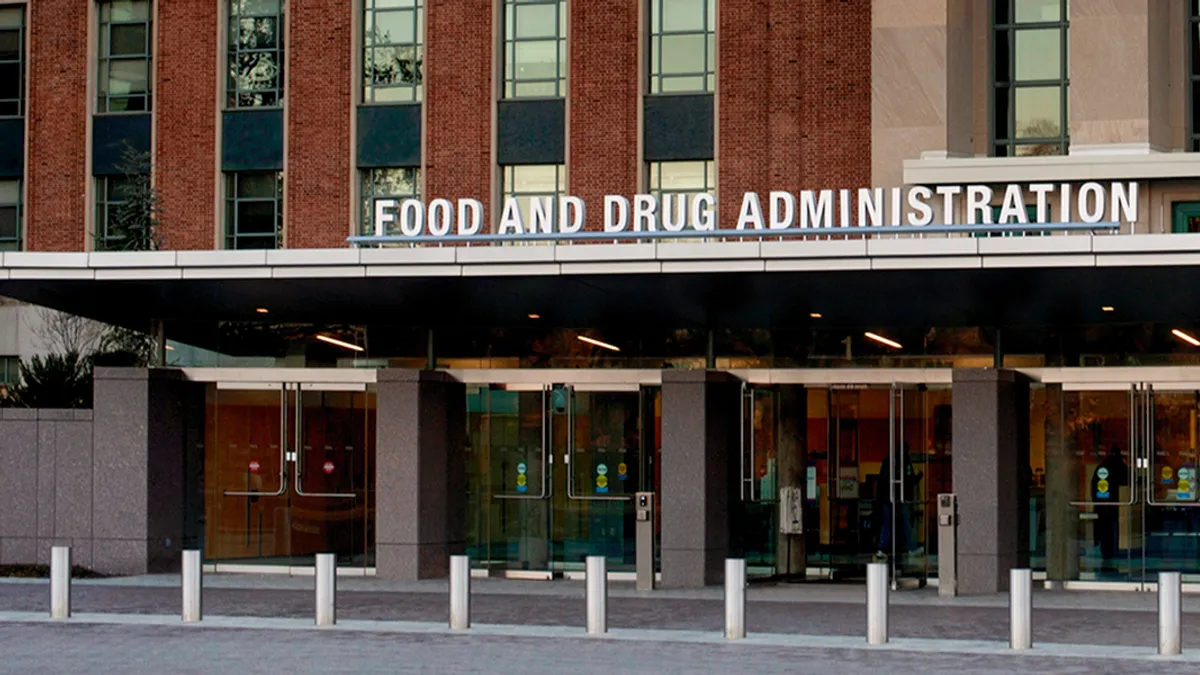Dive Brief:
- FDA received approximately 6,000 medical device reports related to Essure in 2018, the agency said Wednesday in an update on postmarket surveillance of the controversial permanent birth control device no longer sold in the U.S. Most of the MDRs were litigation-related reports submitted by manufacturer Bayer.
- Regulators called Bayer's progress with the five-year Essure postmarket study "adequate," reporting 891 patients were enrolled in the study. As of April 1, 307 of those patients received Essure, and 584 underwent laparoscopic tubal ligation (LTL).
- Those numbers are a slight increase from the 293 Essure patients and 498 LTL patients enrolled as of Dec. 3, but still far from the 2016 parameters FDA set, which aimed to enroll 1,400 patients in each arm of the study. The agency revised those parameters in December, calling original enrollment targets "no longer feasible" due to Bayer's market exit.
Dive Insight:
Tepid enrollment in postmarket studies has dogged FDA's monitoring of a number of women's health devices, including transvaginal mesh and breast implants.
FDA approved Bayer's Essure system, a set of metal coils inserted into the fallopian tubes for bilateral occlusion, back in 2002. Since then, the device has been the subject of tens of thousands of adverse events, including abdominal pain, abnormal uterine bleeding, allergic reactions and device migration.
The agency assigned Bayer a postmarket study in 2016 requiring the company follow women for three years. FDA also updated product labeling to include a boxed warning and patient decision checklist. Since FDA began implementing those changes, sales of Essure fell 70%, FDA said in December.
The blow to its business prompted Bayer to announce last July it would end U.S. Essure sales at the close of 2018. The company has stood by the safety of the device, although related medical device reports jumped to approximately 12,000 total in 2017, with 90% referencing potential surgical removal of the device, according to FDA.
FDA had originally planned to recruit patients to the study through May 2020. But Bayer's market exit prompted FDA to revise the original study parameters and lower expected sample size while extending the follow-up period to five years.
Enrollment of Essure patients can only continue through the end of 2019, as doctors are only permitted to implant the device up to one year after purchasing it from Bayer. FDA said enrollment into the LTL arm will last until that group is double the size of the Essure arm of the study.
"Even though this device is no longer sold, I want to reiterate the FDA’s commitment to regularly communicating with patients and health care professionals about Essure as more information is made available," device center chief Jeff Shuren said in a statement.
FDA said it will make interim study results available once it completes enrollment of the Essure arm of the study.
A group of Essure patient advocates were on Capitol Hill this week lobbying for the Medical Device Safety Act, reintroduced this month by Rep. Rosa DeLauro, D-Conn. The bill would enable patients with PMA-approved devices that cause severe injury or death to seek legal recourse.
Under current law, patients who received Class III devices with premarket approval like Essure are barred from bringing individual liability claims in state court challenging the safety or effectiveness of the devices after the U.S. Supreme Court ruled in a 2008 case there was no private right to sue in such cases.











